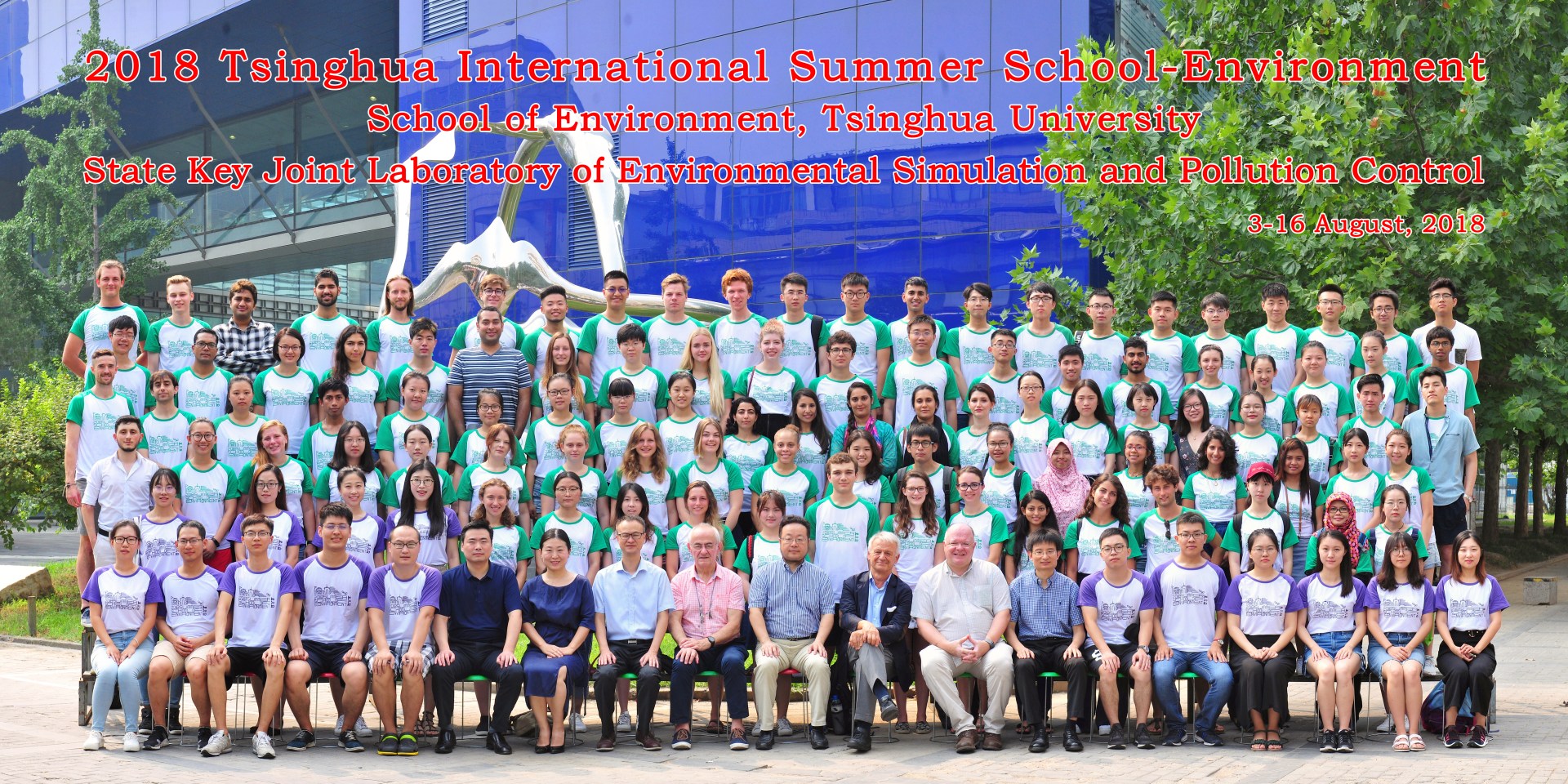
Adventures in Asia: summer school at Tsinghua
Descending into the smog over Beijing one morning in early August, I wasn’t entirely sure what to expect of the Tsinghua Summer School in Environment. As I left two weeks later though, I was aware of how much I’d enjoyed the experience of coming together with nearly 120 other students from across the world to try and tackle the environmental challenges facing China and the wider world.
Getting from the airport to the campus was a rude awakening that my extremely basic Mandarin (nĭ hăo) wasn’t going to get me very far in China. Robert Burns wasn’t wrong when he wrote about the best-laid plans going awry—that’s exactly what had happened with my grand ideas to learn Mandarin before departing.
Once on campus, and after a few magical mystery tours to buy basic necessities and get internet access working—no, family and friends, I hadn’t fallen off the face of the earth, I just didn’t have WiFi yet—it was time to meet the rest of my group. Over mung bean smoothies (think mushy peas, but cold) we introduced ourselves and got to know each other and our teaching assistant.
Before long we had our first challenge, and it was a bombshell—we were expected to put on a group performance at the opening ceremony. After much deliberation, a consensus was reached that about the only thing we could manage would be a song, and the choice of Justin Bieber’s Baby was made. Apparently that’s the closest thing to a culturally universal song out there.
After the mild trauma of the opening ceremony the next day, it was time to settle into the summer school proper. A mixed schedule of lectures, field trips and cultural experiences would keep us busy for our two weeks at Tsinghua, with a group project at the end to bring things to a close.
The diversity of speakers reflected that of the students, with their lectures covering scientific and policy-based approaches to tackling environmental issues. These included membrane reactors for water treatment, operating international conventions through the UN, ‘blue-green solutions’ for city resilience and financing models to support environmental action worldwide.
Life at Tsinghua is very different to Imperial. For one thing, the campus is huge—it’s no surprise bikes are the most popular way to get around. Most students live in dormitories and eat at the many cafeterias dotted around the campus. With all the food labelled in Chinese, dinner roulette became a daily pastime. It was all tasty though, and undeniably cheap.
Seeing the sights around Beijing during field trips and free time was a particular highlight. Our brilliant teaching assistant was really keen to show us around, and we had some great times together, wandering through an ancient hutong before dining at a tiny Szechuan restaurant, stumbling across a karaoke night in Wudaokou after a group meeting, sampling traditional deserts in Wangfujing, exploring the Temple of Heaven before watching night fall over Houhai lake, joining the 80,000-strong crush of people visiting the Forbidden City each day, getting lost in the Summer Palace and having to dash for the last ferry across the lake, and soaking up the atmosphere of the Olympic Park by night.
One of the most valuable aspects of the experience for me was the wonderful people I met. There’s nothing quite like the bond you form when working on a group assignment together at 3 am, slightly delirious from exhaustion, or indeed from the bike ride back across campus at 4. We shared loads of great experiences with students from across the world, and it was fascinating to learn about the culture and environmental challenges of peoples’ countries. It’s not often you’ll find a group of young people getting deep into conversation about the solid waste management systems in their homelands. Perhaps unsurprisingly, that’s the topic we ended up picking for our group project.
I’m sure there’s never been a more important time for chemical engineers to be addressing environmental challenges. The breadth of industry we can impact gives us a unique position from which to drive positive change. I left Tsinghua confident that the future is bright.
This experience was supported by scholarships from Tsinghua and Imperial, for which I’m very grateful. This post has also been published on the Department of Chemical Engineering blog.